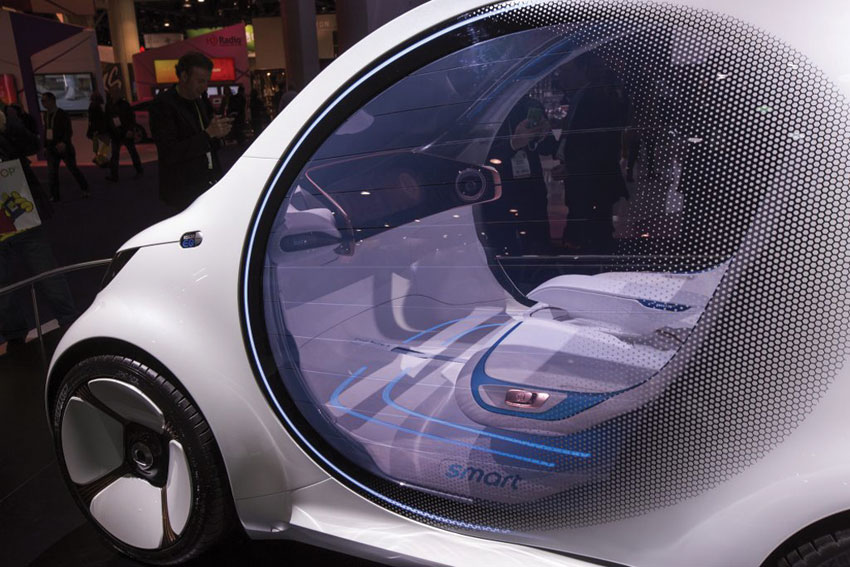Privacy Becomes a Selling Point at Tech Show: CES 2019
Autonomous vehicles like the Mercedes-Benz Smart Vision EQ concept car are being shown at the Consumer Electronics Show, as a campaign is launched to explain the potential benefits of these technologies (David McNew/AFP)
Apple is not among the exhibitors at the 2019 Consumer Electronics Show, but that didn’t prevent the iPhone maker from sending a message to attendees on a large billboard. Here’s a peek at the 2019 Consumer Electronics Show.
“What happens on your iPhone stays on your iPhone,” Apple says in the message to be seen by tens of thousands attending the Las Vegas tech show.
The message comes as gadget makers are concerned about data protection scandals and in many cases looking to make their own point about respect for privacy.
Some companies are offering better ways of protecting internet routers or services without a need for an internet connection—reducing the potential for data leaks and breaches.
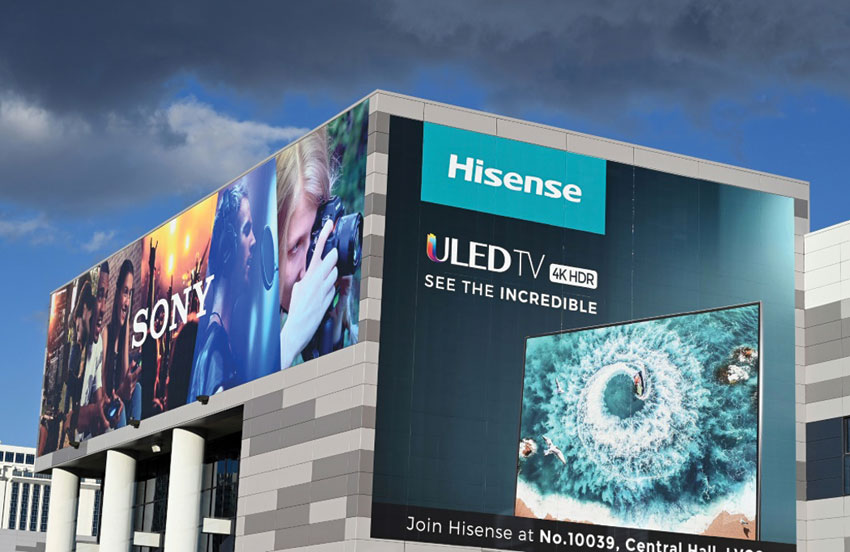
Dutch startup Scalys is showing its Trustbox, a router that aims to protect the user’s connection as well as devices using it.
Another router from Chicago-based Winston stops tracking and surveillance and can also block ads and geolocation.
The data scandals “are like Christmas presents for us,” by prompting more consumers to look for better security, said Winston founder Richard Stokes.
“As we see more things being connected, I think that you’ll definitely hear people talk about security more and really looking at how would you secure the data,” said analyst Carolina Milanesi of Creative Strategies.
“More companies are going to take kind of a cue from the marketing that Apple has been doing.”
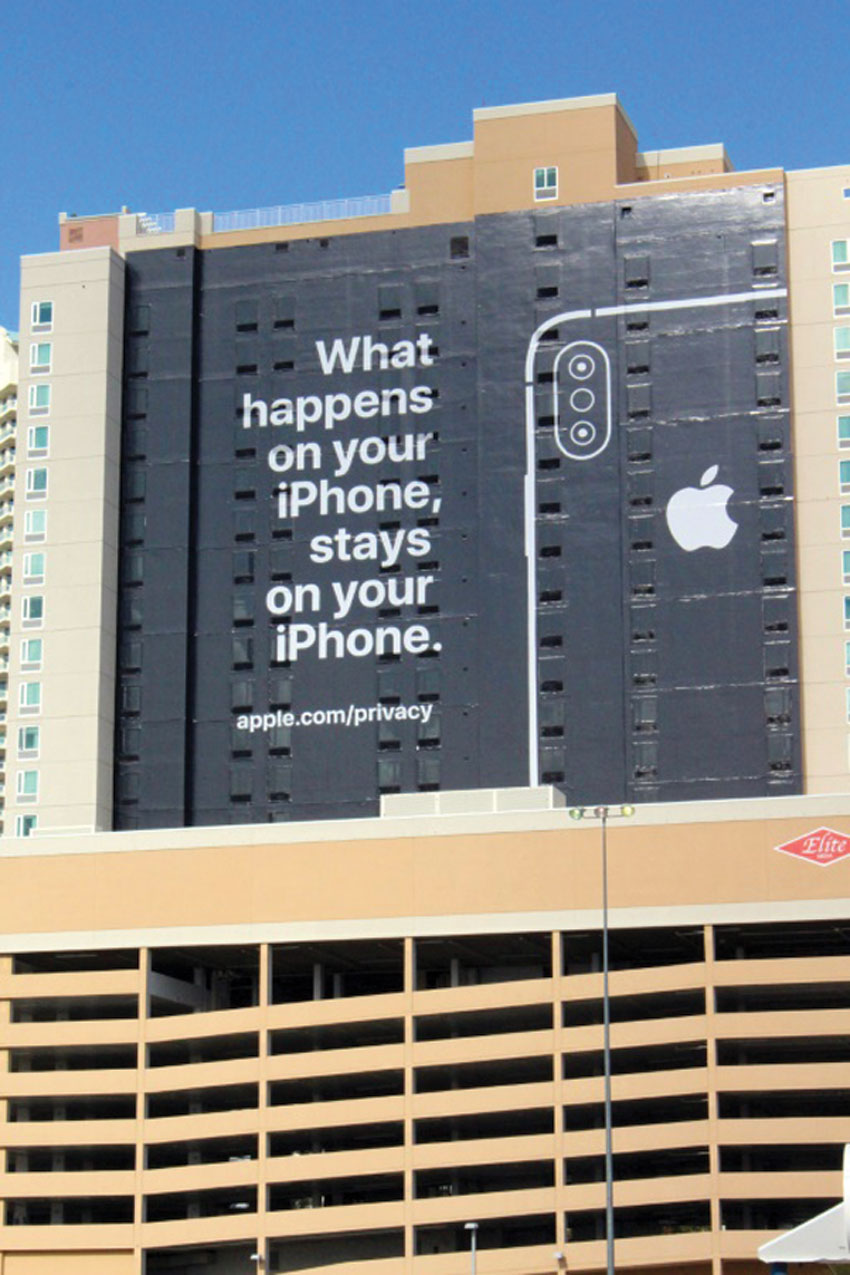
Extra Layers of Protection
An estimated 74 million Americans have smart speakers, according to the research firm eMarketer, with Amazon and Google controlling the lion’s share of the market.
One of the fears of customers is that these devices are always listening, potentially putting privacy at risk.
One device being launched at CES is called Mute from a startup called Smarte, creating a layer of protection to stop the devices from picking up conversations not intended for queries.
French startup Snips is offering its own digital assistant which can be installed on a device without an internet connection.
“Customers are turning to us because they don’t want to depend on Big Tech,” said Snips founder Rand Hindi.
Hindi said the argument from tech firms that they need user data to make things work is false.
“The only reason they need your data is to target you (with ads) to the maximum,” he said.
Analyst Bob O’Donnell of Technalysis Researchers said more companies are starting to wake up to issues surrounding privacy and data protection in light of the revelations on Facebook and others over the past year.
“We’ve all started to become painfully aware of how big (and far-reaching) the problem of data privacy is,” O’Donnell said.
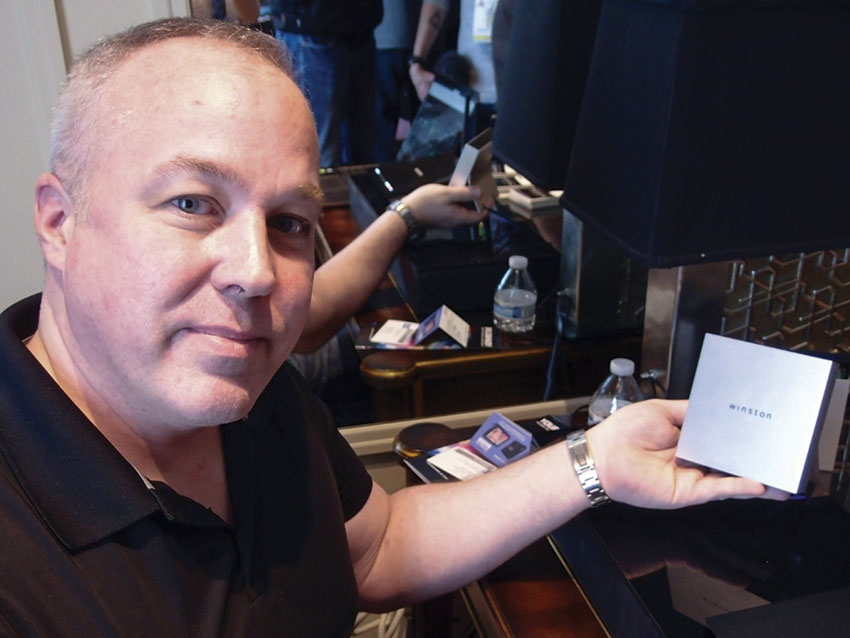
U.S. Gadget Love Forecast to Grow Despite Trust Issues
The U.S. tech industry is weathering a crisis of confidence over data protection and a difficult geopolitical situation, with record sales expected in 2019, organizers of the Consumer Electronics Show said, Jan. 6.
The Consumer Technology Association (CTA) predicted that U.S. retail revenue in the sector would climb to a record high $398 billion this year.
The forecast was unveiled ahead of the opening of the giant fair which from January 8-11 will showcase the newest tech in mobile computing, health, sports, automobiles, agriculture and more.
“There are so many cool things happening in the consumer electronics industry right now,” said CTA vice president of market research Steve Koenig.
Trends gaining momentum and expected to be on display on the CES show floor included super-high resolution 8K televisions, blazingly fast 5G wireless internet, and virtual aides such as Google Assistant and Amazon’s Alexa woven into devices of all kinds.
CTA director of market research Lesley Rohrbaugh pointed out that “digital assistants are going into everything.”
The CTA forecast revenue growth in the U.S. for smartphones, speakers, homes and watches along with televisions, drones, “in-vehicle tech,” and streaming services.
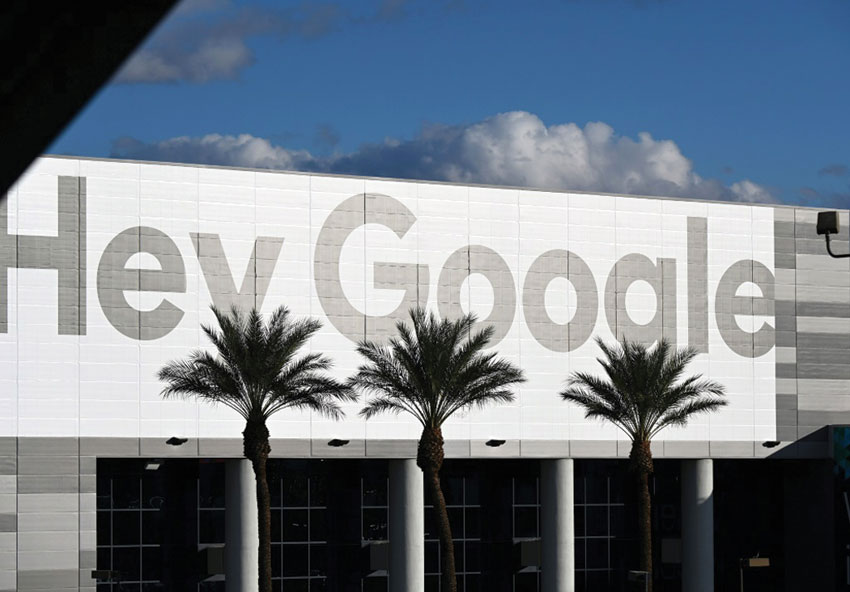
Outlook Clouded
The upbeat outlook, however, has been tempered by concerns about trust and a simmering trade war with China which has seen President Donald Trump slap hefty tariffs on imports of tech products.
Gary Shapiro, president and chief executive of the CTA, said the dramatic drop in sales of U.S. goods to China reported by Apple and other firms suggests potential troubles ahead.
“If China catches a cold, we get the sniffles,” Shapiro told AFP in an interview during the CES media preview day.
“The economies are interrelated now. It’s something President Trump doesn’t quite understand… President Trump’s motives are appropriate, but his tactics are inappropriate.”
The trade event features 4,500 exhibitors across 2.75 million square feet (250,000 square meters) of exhibit space showcasing artificial intelligence, augmented and virtual reality, smart homes, smart cities, sports gadgets and other cutting-edge devices. Some 182,000 trade professionals are expected.
Visitors could see more dazzling TV screens, intuitive robots, a range of voice-activated devices, and folding or roll-up smartphone displays.
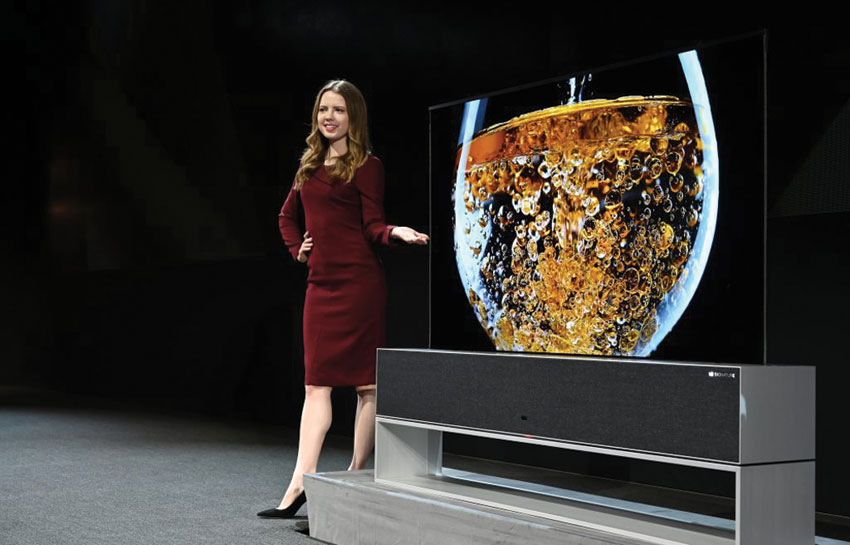
Data Deluge
There will be a focus on artificial intelligence that can “personalize” a user’s experience with a device or a car, or even predict what someone is seeking—whether it’s music or medical care.
But because this ecosystem is built around data, confidence has been eroded by scandals involving Facebook, Google and other guardians of private information.
“Everywhere you go, data is going to be the common denominator,” Koenig said while discussing CES trends.
“We are transitioning into the Data Age; I think it is going to be a little bit like ‘The Matrix,’” he added, referring to the hit 1999 science fiction film.
Shapiro said he believes the industry is capable of self-regulation, but that Congress could likely act as a result of data protection scandals.
But he said the U.S. should not follow the example of Europe’s General Data Protection Regulation (GDPR), saying that it is “stifling innovation.”
“We want to balance innovation with data collection, and it should be situational,” he said.
“If your car is about to hit another car, privacy is irrelevant. But if you’re talking about someone’s medical history, that’s very important.” – AFP
